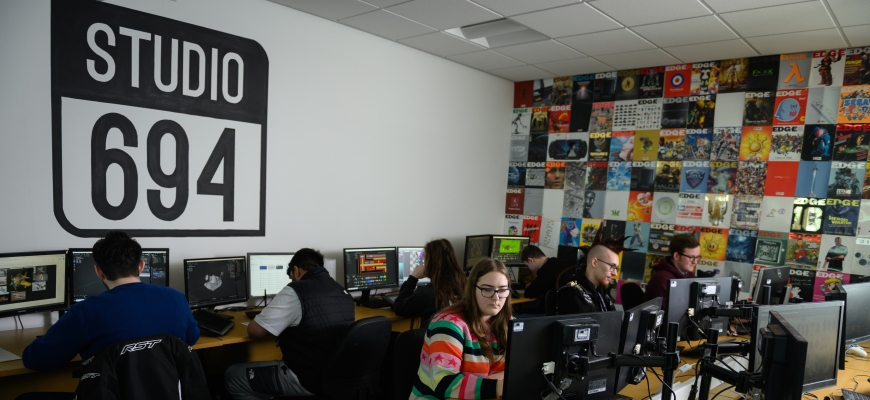
A college in Leamington has seen a major shift in gender balance for its games art courses and is seeing its student intake move away from being male-dominated for the first time.
Royal Leamington Spa College, which is part of college group WCG (Warwickshire College Group), delivers Games Art courses from Level 3 up to Level 6.
The college has seen the gender diversity on its Level 3 Games Art & Design course change dramatically over the last three years and estimates indicate that in 2025 there will be a swing to 53 per cent of the students who complete the course not being male.
This year the split is 52 to 48 per cent, which is significant growth from the 18 per cent females who completed the Level 3 course only two years ago.
UK Interactive Entertainment (UKie) is the trade body for the UK games and interactive entertainment industry.
UKie’s Diversity Report revealed that the percentage of females in the games industry increased to 30 per cent in 2022, with three per cent non-binary/other and 67 per cent male.
The percentage of women in senior and leadership roles has increased to 22 per cent.
Adam Cox is Subject Lead for FE and HE Games Art at Royal Leamington Spa College and says he thinks the change is being driven by inspiring female leaders and the reputation games studios have as positive places to work.
“The video game industry has been historically a male-dominated industry, however it is clear that trend is changing from our student intake in the last few years,” he said.
“Changing the culture in games and encouraging a more diverse range of people to join the industry has been a hot topic for many years.
“We are starting now to see a lot of strong females in leadership roles, and you look at new start-up companies like Maverick Games here in Leamington which have major female representation in its leadership team.
“When you combine that with the work that schools, colleges and the wider games industry is doing to highlight opportunities to people from different backgrounds, it is all contributing to the change in trends.
“The atmosphere of working in the games industry and that sense of community is definitely something that is leading more people into the industry.
“We’ve been working to promote diversity in the sector too, including mentorship schemes and organising all-female panels at industry events.”
To find out more about studying at WCG visit www.wcg.ac.uk/study
